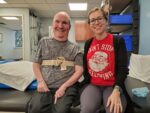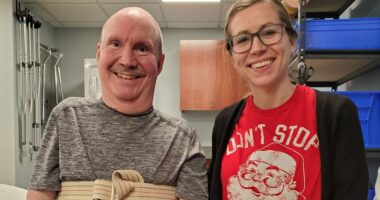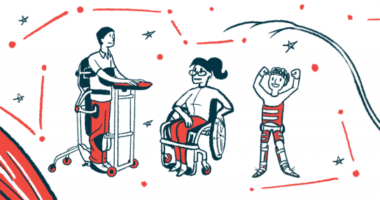Physical therapist’s return to work will involve lots of conversations
A slow transition expected as patient has been working with others

I’ve been on leave for a few months, while Michael, a patient I work with who has spinal muscular atrophy, has been working with other therapists at my office. Over the next few weeks, I will be returning as Michael’s primary physical therapist.
My plan is to meet with the therapist he has been seeing while I have been out on leave to discuss his treatments. She will inform me of what they have been performing and focusing on as well as new ailments they have encountered. We will have discussions about how treatment has been going and what progress has been made. Although I have been keeping up with Michael and his progress, it will take a few weeks for him to fully transition back to me.
As it has been a few months since I worked with Michael, I assume he has experienced goal changes as well as a change in his functional status. Listening and asking questions will be an important part of the transition. I will need to be up to date on any new activities implemented into his program.
I also will be asking questions about any new manual techniques as well. Michael has mentioned the therapist has found another muscle on his hip that may be contributing to the numbness down his leg, and she has some ideas to reduce the pain and numbness he has been experiencing.
I am looking forward to getting caught up on everything, including what has been helpful for Michael. It has been to our advantage to have another therapist treat him and put their own thoughts and ideas on what activities should be implemented into his plan to help maintain his progression.
Moving forward, we will continue with whatever activities have been helping Michael the most, performing a combination of old and new activities and continuing to modify them as necessary.
As I am returning, Michael also will be discharged from a rehabilitation facility he went to while his primary caregivers were on vacation. I am assuming there will be new ailments as his routine will be much different and he may be spending more time in or out of bed, depending on how much assistance the facility can provide.
I will not know exactly what our routine will be until Michael and I have a session to discuss the past few months and what he feels his progress has been. I know the therapist he has been seeing is excellent and has had some new ideas for him, so we will be trying out the new techniques to see how we can continue to progress his comfort and independence.
Patient perspective
I feel extremely fortunate to have talented and loving physical therapists. Many people in physical therapy could have different therapists working with them each week, but I feel like I’m one of the lucky ones, because I’ve had the same physical therapists for the past seven years. Sometimes I feel they know me better than I know myself. I know they know more about me than my immediate family because the only way they can successfully work with me and help me is to know everything about me.
My faith and trust are something my physical therapists are serious about, and I know that each time I go, my best interests are their primary goal and concern. Yes, I am one of the lucky ones, and yes, I love them as if they were part of my immediate family.
The definition of trust, in my opinion, is when you put your faith, health, and safety in someone else’s hands.




